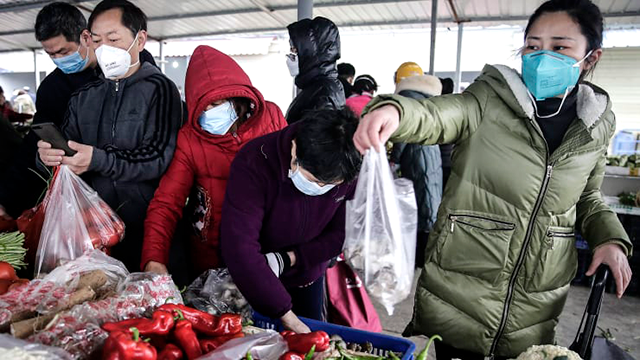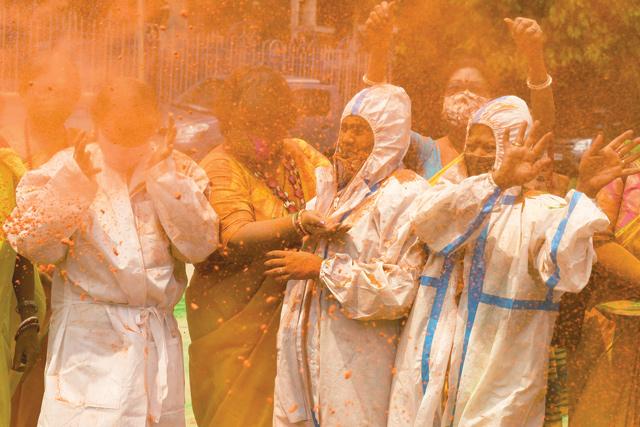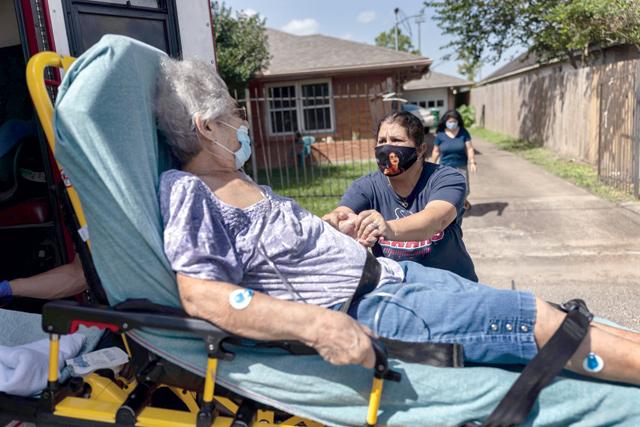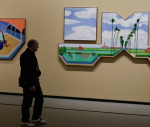You are here
WHO says coronavirus came from an animal and was not made in a lab
By USA Today (TNS) - Apr 22,2020 - Last updated at Apr 22,2020

Resident wear masks to buy vegetables in the market on January 23 in Wuhan, China (AFP photo)
All the available evidence indicates coronavirus originated in animals in China late last year and was not manipulated or produced in a laboratory as has been alleged, the World Health Organisation said Tuesday in a news briefing in Geneva.
"It is probable, likely, that the virus is of animal origin," said WHO spokeswoman Fadela Chaib.
The global health body's remarks follow confirmation from President Donald Trump last week that his administration is probing whether coronavirus originated in a lab in the Chinese city of Wuhan, where the disease first emerged. There is no evidence it did.
Two theories about how coronavirus may have escaped the Wuhan Institute of Virology have circulated among right-wing bloggers and some conservative media pundits.
One theory suggests that the virus could be man-made and linked to a Chinese biowarfare program. But it's an idea that has been widely dismissed by scientists. A second scenario accepts the virus as naturally occurring, from a bat, say, but which accidentally escaped the research facility due to poor safety protocols.
Both theories are based on circumstantial evidence such as the Wuhan Institute of Virology's history of studying coronaviruses in bats, the lab's proximity to where some of the infections were first diagnosed and China's reported lax safety record in its labs.
In the briefing, Chaib said there remained some outstanding questions over how, precisely, coronavirus jumped the species barrier to humans, but she said that an intermediate animal host was the most likely explanation. She said coronavirus, known formally as COVID-19, "most probably has its ecological reservoir in bats."
The Trump administration has accused the WHO of a catalogue of errors over its response to the pandemic, including failing to adequately prepare for the outbreak, raising the alarm too slowly and naively accepting flawed information from China.
The WHO disputes all the allegations. Most public health experts don't agree with the Trump administration's specific criticisms of the WHO, although they acknowledge that the organisation needs reform and lacks transparency. The Washington Post reported over the weekend that American officials working with the WHO sent back information to the White House about the spread of the virus in the crucial early days of January.
Related Articles
WASHINGTON — Whether Covid-19 was unleashed by a laboratory mishap or spilled over from animals remains an enduring, fiercely contested myst
GENEVA — An international expert mission to Wuhan concluded in a report seen on Monday that COVID-19 likely first passed to humans from a ba
WASHINGTON/PARIS — A classified US intelligence report delivered to the White House on Tuesday was inconclusive on the origins of the COVID-

















